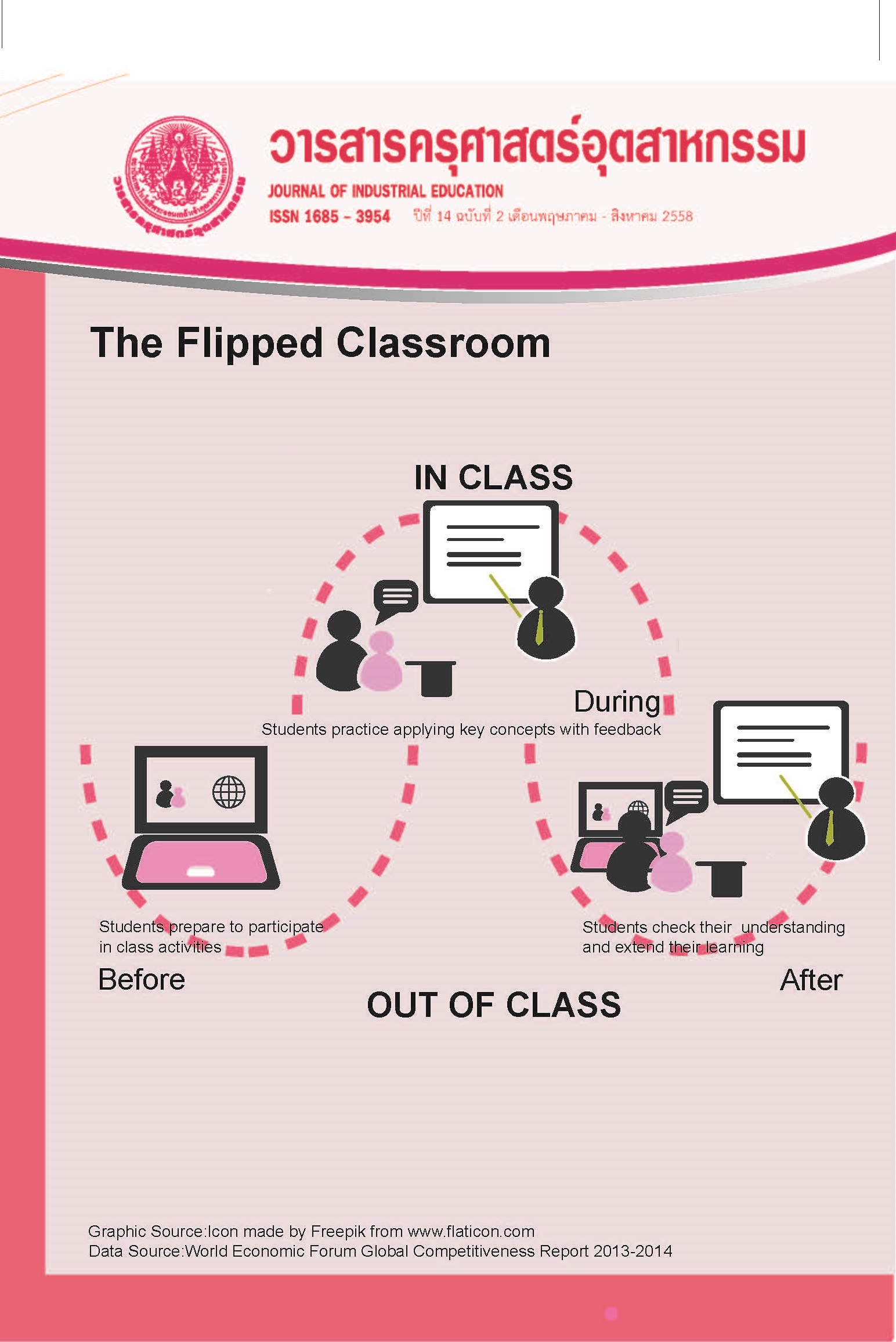The development of learning achievement and problem solving ability for grade 12 students by using project-based learning activities
Keywords:
project-based learning activities, lesson plan, learning achievement, Problem solving ability, HydroponicsAbstract
The purposes of this research were to develop a lesson plan using project-based learning and to compare the learning achievement and problem solving ability between pre-test and post-test among grade 12 students in Hydroponics by using project-based learning activities. The sample subjects were 40 students in grade 12 of Mattayom Watbuengthong School, Bangkok. They studied for 12 weeks during the second semester of 2013 to by selected in Hydroponics. The research instruments included were a lesson plan using project-based learning, the quality evaluation form of a lesson plan using project-based learning, the achievement test at the level of difficulty 0.40-0.65 and the level of discrimination 0.20-0.55 with 0.89 reliability and a test on the problem solving at the level of difficulty 0.38-0.68 and the level of discrimination 0.25-0.65 with 0.81 reliability. The statistics used for data analysis included mean, standard deviation, and t-test (dependent sample). The results of the research were as follows : 1) a lesson plan using project-based learning in grade 12 was very good level. 2) Learning achievement among grade 12 students by using project-based learning activities indicated that the post-test learning achievement scores of the sample were significantly higher than the pre-test at the .01 level. 3) Problem solving ability for grade 12 students by using project-based learning activities indicated that the post-test problem solving ability scores of the sample were significantly higher than the pre-test at the .01 level.
References
[2] อภิชาตนันท์ อนันนับ. 2554.การนำหลักปรัชญา เศรษฐกิจพอเพียงมาใช้ในการจัดการเรียนการสอนวิชาเกษตรในโรงเรียน มัธยมศึกษา สำกัดสำนักงานเขตพื้นที่การศึกษา กรุงเทพมหานคร เขต3. วารสารครุศาสตร์อุตสาหกรรม, 11(1). น.38.
[3] เชาวลิต ชูกำแพง. 2551. การพัฒนาหลักสูตร. มหาสารคาม: มหาวิทยาลัยมหาสารคราม.
[4] สำนักงานรับรองมาตรฐานและประเมินคุณภาพ การศึกษา. 2554. รายงานการประเมินคุณภาพภายในของสถานศึกษาประจำปี การศึกษา2554. กรุงเทพฯ : คุรุสภาลาดพร้าว.
[5] กฤษฎา คูหาเรืองรอง. 2553. การเปรียบเทียบความสามารถในการคิดแก้ปัญหา และเจตคติต่อวิชาการงานอาชีพและ เทคโนโลยี ของนักเรียนชั้นมัธยมศึกษาปีที่ 1 ระหว่างกลุ่มที่จัดการเรียนรู้แบบโครงงาน และแบบวัฏจักรการเรียนรู้. การศึกษา มหาบัณฑิต สาขาวิชาการจัดการเรียนรู้ บัณฑิตวิทยาลัย มหาวิทยาลัยราชภัฏพระนครศรีอยุธยา.
[6] Bloom, Benjamin S. 1956. Taxonomy of Education Objective Handbook I : Cognitive Domain. New York: David Mackey Company,Inc.
[7] Weri, John Joseph. 1974. Problem Solving is Everbody’s Problem. Science Teacher,(4), p. 16-18.
[8] พวงรัตน์ ทวีรัตน์. 2536. วิธีการวิจัยพฤติกรรมศาสตร์และสังคมศาสตร์. กรุงเทพฯ : ฟิงเกอร์ปริ้น แอนด์ มีเดีย.
[9] ศิริบัญชา จันทรโคตร. 2549. การเปรียบเทียบผลสัมฤทธิ์ทางการเรียน ทักษะการคิดวิเคราะห์ และเจตคติต่อการเรียนรู้การงาน อาชีพและเทคโนโลยี เรื่องการปลูกพืช ไร้ดินโดยใช้กิจกรรมการเรียนรู้แบบโครงงาน และกิจกรรมการเรียนรู้ แบบ CIPPA ของนักเรียนชั้นมัธยมศึกษาปีที่ 5. การศึกษามหาบัณฑิต สาขาวิชาหลักสูตรและการสอน บัณฑิตวิทยาลัย มหาวิทยาลัยมหาสารคราม.
[10] วิไล พลเยี่ยม. 2552. การพัฒนากิจกรรมการเรียนการสอนภาษาอังกฤษโดยใช้การเรียนการสอนแบบโครงงาน ชั้นประถมศึกษา ปีที่ 6.วารสารวิชาการหลักสูตรและการสอน,1(1), น.53.
[11] ณัฐพร เลิศพิทยาภูมิ. 2549. ผลการจัดกิจกรรมการเรียนรู้แบบโครงงานในกลุ่มสาระการเรียนรู้สังคมศึกษา ศาสนาแลวัฒนธรรม ที่มีต่อความสามารถในการแก้ปัญหา และพฤติกรรม ในการอนุรักษ์สิ่งแวดล้อมของนักเรียนชั้นมัธยมศึกษาปีที่ 2 โรงเรียนสาธิต ในกรุงเทพมหานคร. การศึกษามหาบัณฑิต สาขาวิชาการสอนสังคมศึกษา บัณฑิตวิทยาลัยจุฬาลงกรณ์มหาวิทยาลัย.
Downloads
Published
How to Cite
Issue
Section
License
"The opinions and contents including the words in papers are responsibility by the authors."
"ข้อคิดเห็น เนื้อหา รวมทั้งการใช้ภาษาในบทความถือเป็นความรับผิดชอบของผู้เขียน"



